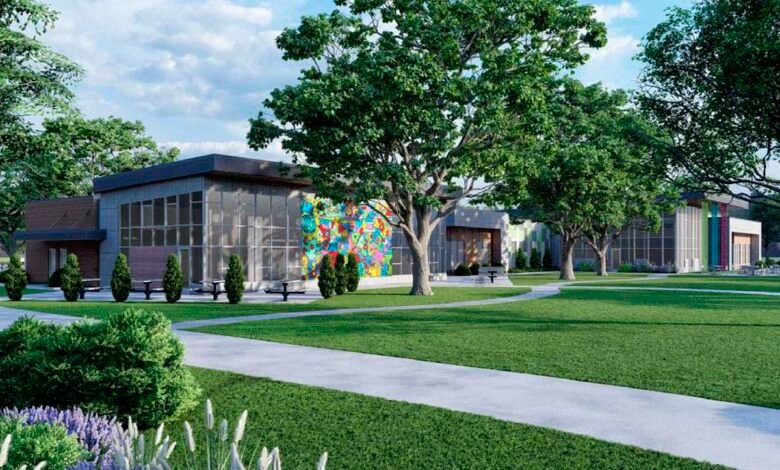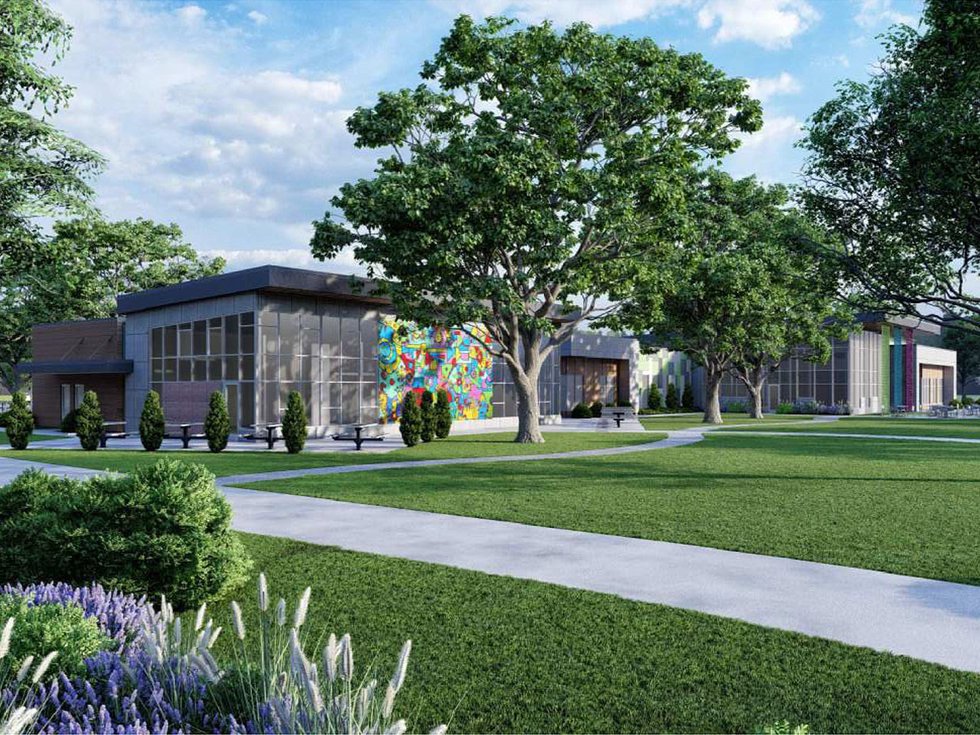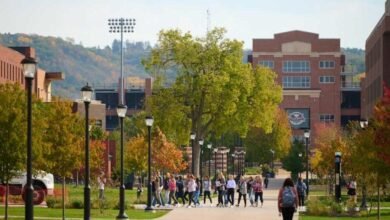Sabrina Madison tries to keep Imagination Center alive – Isthmus


Growing up, the library was a safe place for Ald. Sabrina Madison, a haven from an impoverished household where domestic abuse was prevalent: “When there was chaos and dysfunction in my house, I would walk to the library and read. I would check out books, because if you’re a reader-reader, you escape.”
When she moved from Milwaukee to Madison in 2007 with no money and no internet service, she made full use of the Goodman South Public Library where she filled out job applications as her son did homework and checked out “Naruto” books.
“The Goodman South library really saved us,” says Madison, a self-proclaimed “library nerd.”
Her love of libraries led Madison to serve on the Madison Public Library Board in 2023, shortly after becoming an alder. It’s also why she’s fighting so hard to save the long-awaited Imagination Center at Reindahl Park, a project imperiled by city budget cuts. “This side of town,” she says, “literally has nothing. No community center, no library when school is closed,’” Madison says. “They’ve got no community center, no fresh grocery store — the grocery store is kind of a ways away — no library, but they’re paying taxes.”
The closest library to Reindahl Park, located on Portage Road off of East Washington Avenue, is the Hawthorne Public Library, which is an hour-long walk or eight minute car ride away. Former Ald. Joe Clausius, who has lived in the area around Carl Sandburg Elementary School for more than 30 years, called the area — composed of 41% people of color and 39% cost-burdened residents — a “library desert” during an Aug. 27 town hall organized by Madison to brainstorm ways city residents can push the library forward, even if a $22 million operating budget referendum fails in November.
Though the library’s capital funding is largely secured, its operating costs are not: The project would increase the library operating budget by $1.5 million over three years, a difficult prospect when city agencies are being told to submit 5% budget cut proposals, Madison Public Library Director Tana Elias said at the meeting.
“If reductions are happening, it is even harder to advocate for a new service,” Elias said. “It would basically be like a 10% [across-the-board] cut to advocate for this moving forward.”
Elias says over email that it’s unlikely other revenue sources, like private donations, could be raised to cover the costs.
“Likewise, libraries are somewhat limited in the services they can charge for according to state statute,” she adds, “so it is unlikely that we’d be able to create any revenue streams that would provide significant funding on an annual basis.”
If the referendum passes, the library in its July budget outlook suggests allocating three currently vacant positions to “support the development of the Imagination Center at Reindahl Park.” Without a referendum, the library’s future is uncertain: Ald. Madison proposes that other city libraries redistribute employees to staff the Imagination Center, though that could potentially shorten other libraries’ operating hours. She says that recommendation would be made by the Library Board and brought to the city council, who would eventually need to approve any redistribution.
The original plans called for construction of the Imagination Center to begin in spring 2025 and for the library to open in fall 2026.
City officials pitch the Imagination Center as part library, part community meeting space. Once opened, it would be Madison’s 10th public library and mark the first time since 2000 — when the Alicia Ashman library opened — that a new public library has been built in Madison.
The opening would keep Madison in its current position — firmly in the middle — in terms of national averages for branch library openings in cities of its size. According to data from the U.S. Census Bureau and Institute of Museum and Library Services, Madison, at eight branch libraries, has slightly more than the average 7.64 branch libraries among cities with 200,000-400,000 populations, and slightly more than the average 6.42 branch libraries among cities with similar population growth rates.
Yet the east-side area’s population is growing at a higher rate than the rest of the city — 19% from 2010-2020, compared to 16% citywide in that time period — and the area’s outsized growth is expected to continue. Ald. Madison says the delay exacerbates Madison’s equity issues, particularly for residents of color and low-income residents.
Clausius lobbied for capital funds for a potential east-side library as early as 2007 and parks and library staff first discussed the Reindahl Park area as a potential spot for a new library in 2014. A specific proposal for the Reindahl Park library was advanced in 2017, with then-Ald. Samba Baldeh at the forefront.
Continually choosing not to fund the library sends a message that those residents matter less, Madison says; some residents, she adds, have taken to calling the center the “Imaginary Center.”
Madison, for her part, positions the Imagination Center as a space where residents can connect not only with library resources, but with city and county services. She says the lack of a library in the east-side area means there is no “central place for [residents] to access city agencies.”
Take, for instance, Metro Transit’s recent “Go By Metro” events at city libraries, where Metro officials distributed transit cards and answered questions about Madison’s new bus rapid transit system. Madison says that she loved the idea behind the event, but immediately wondered how her constituents — some of whom do not have cars — could access such an event when the nearest library required an hour-long walk or an unsafe bike ride.
“None of this was accessible,” Madison says. Eventually she worked with Metro officials to host an event at Reindahl Park.
Internet access and access to educational services — including language-learning services — are among the other services Madison says would be a boon to residents.
Particularly important, she adds, is to connect children at the nearby Sandburg Elementary School to library resources. School officials there, she says, worry the lack of a nearby library means that in the summer, students and their families have no access to the resources schools provide. More than 75% of MMSD students enrolled in the area qualify for free or reduced lunch.
Madison says she’s had conversations with children over the library’s delay — she describes chatting with a boy she estimated to be around 11 years old who asked her when the library would open.
“I had to have, like, the child version of the budget discussion,” Madison says with a laugh. “He’s like, ‘Well, I hope it isn’t like, 50 some years from now.’”
“It was such a difficult conversation, because the discussion started before he was born,” Madison adds. “I felt so…not that I failed, but [that] this project has failed for the kids that it was initially considered for.”




